The state of Magic: The Gathering Arena in 2021
Year of the Mulligan?
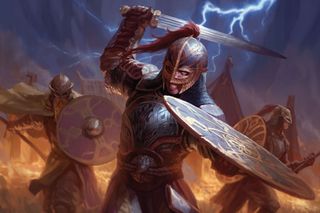
If you sat in on Hasbro's Q3 earnings call in October of 2020, you might think Magic: The Gathering Arena had escaped the economic sinkhole that swallowed its cardboard counterpart. You would hear numbers like 2.8 billion games played, "which is up quite a lot since Q2", and a narrative of digital success being the tide that raises the dinghy of its venerable but struggling analog counterpart.
But the story from players and fans would read more like a relationship where one partner keeps promising this time will be different, punctuated by I-can-do-better gifts. What went wrong, and how can Wizards scry a brighter future?
What happened last year?
Magic: The Gathering Arena began 2020 with a slate of releases—the Greek myth-themed Theros: Beyond Death in January, the small but concentrated Ikoria set in April, Core 2021 in June, and Jumpstart in July, which was positioned as a new format that created a deck from a mixture of themed packs.
The last set for 2020 was a return to a fan-favorite setting with Zendikar Rising. And while Arena still doesn't support the popular Commander or Modern formats, the addition of ranked and unranked Historic in May provided players more options for deckbuilding using their digital collections.
The COVID-19 pandemic and ensuing economic plunge meant local game stores, coordinated Magic events, and even physical shipments either ended completely or held on by a tenuous thread. Those taking their hobby online during quarantine and folks looking for something new to play found Arena in one of the most beginner-friendly states since launch thanks to a dedicated tutorial and decks rewarded for completing early quests.
Arena's main monetization system is the Mastery Pass—a concept familiar to anyone who has played a live service game in the wake of Fortnite. Players abhorred earlier versions for the constant changes to rewards and Wizards' seeming reluctance to alter the price based on what's included and how much (or little) time there would be to earn each tier's rewards. But Zendikar's Mastery Pass showed some improvement, offering one of the best values to new players if they logged in every day to complete missions.
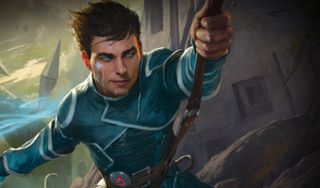
The removal of Jumpstart, despite its clear popularity in both the analog and digital formats, led many to suspect decision-making around Arena followed maximum profitability over entertainment. The Professor, from the Tolarian Community College YouTube channel, listed it as an honorable mention among the worst mistakes in Magic for 2020.
The biggest gaming news, reviews and hardware deals
Keep up to date with the most important stories and the best deals, as picked by the PC Gamer team.
"Why would this incredibly popular way of playing Magic be removed at all, let alone so quickly?" he says in the video. "They did not want Jumpstart to be the reason everyone played Arena because Arena has a very specific—and let's be honest—very greedy economy."
The community seemed to agree. The Magic Arena subreddit characterized the win-based missions as a funless grind up a ladder to earn the two currencies necessary for acquiring more cards. Prioritizing wins meant constructed decks in ranked play often leaned towards winning as fast and overwhelmingly as possible, pushing out interesting ideas in favor of brutal, crushing efficiency.
In the same quarterly earnings call cited above, Hasbro CFO Deb Thomas said the analog playerbase of Magic: The Gathering remained larger than Arena, even accounting for digital migration during the pandemic. Their intentions seemed to be continuing support for physical products as much as possible, even while touting online growth. Arena players felt like an afterthought, and the fiscal minutes didn't do much to disabuse them of the notion.
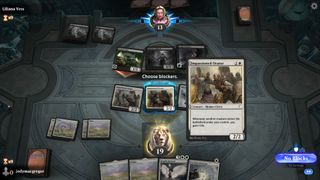
What's coming next?
That said, it's difficult to keep fans of a live-service game down for long (right, Guardians?). Magic Arena will drop the 285-card Kaldheim set on January 28, allowing players to discover a world drenched in Nordic lore where gods and legends walk the frozen tundra. A new Planeswalker in the set, the blue/white Niko Aris, will be the first non-binary Planeswalker in the game's massive universe.
Kaldheim continues to eschew the old block model—where the story of a plane stretched over two or three releases with shared mechanics—and will instead exist as one of three consecutive sets with a single mechanic, regardless of theming. This set will be the second to include the modal double-faced lands introduced in Zendikar Rising, a mechanic that will close out with Strixhaven: School of Mages later in 2021.
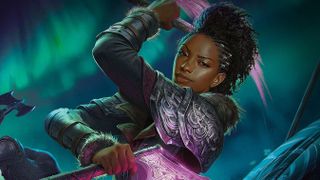
Tribal affinity returns with 10 dominant creature types, including dwarves, elves, trolls and shapeshifters, across dual-color splits. Players of all experience tend to love tribals for their flavor, versatility with other strategies and relative mechanical ease. Foretell and Boast, two brand new mechanics, hit both sides of the defensive/aggressive paradigm while further characterizing Kaldheim as a world of mysticism and clan wars.
Perhaps the most exciting news is the long-awaited and delayed mobile version of Magic Arena, currently slated to release for Android on January 28, coinciding with Kaldheim's digital release. This full version will be available for free and supports cross-platform play. Wizards has not announced a firm release date for iOS devices.
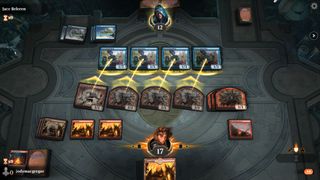
How is the community?
Will a new set be enough to earn back the goodwill of Arena players? Even in aggregate, none of these problems have loomed large enough to coalesce general grumbling into a movement to abandon the game for alternatives like MTG Online. While Scute Swarm token abuse prompted Wizards to step in swiftly when it caused widespread server instability in December, old bugs remain, and have been accepted as features of the landscape by this point.
Anyone who downloads Magic Arena on January 28 to start cracking Kaldheim boosters won't find their enjoyment compromised by these issues. And the influx of new or returning players talking on Twitter, Reddit, or in Twitch streams often find their generally positive opinions at odds with the old hats. Heck, I consider my relationship with the game somewhere in the enthusiast range, and I can't cop to any sour grapes.
But as lockdown continues in many parts of the world and the future of public, in-person events remains foggy, it's easy to wonder why this growing online community isn't receiving more attention. Arena contains the potential to be more than a neat alternative to tabletop play in the post-COVID Magic ecosystem. The players certainly want it, but Wizards of the Coast seems content to leave them in the sideboard.
Most Popular




